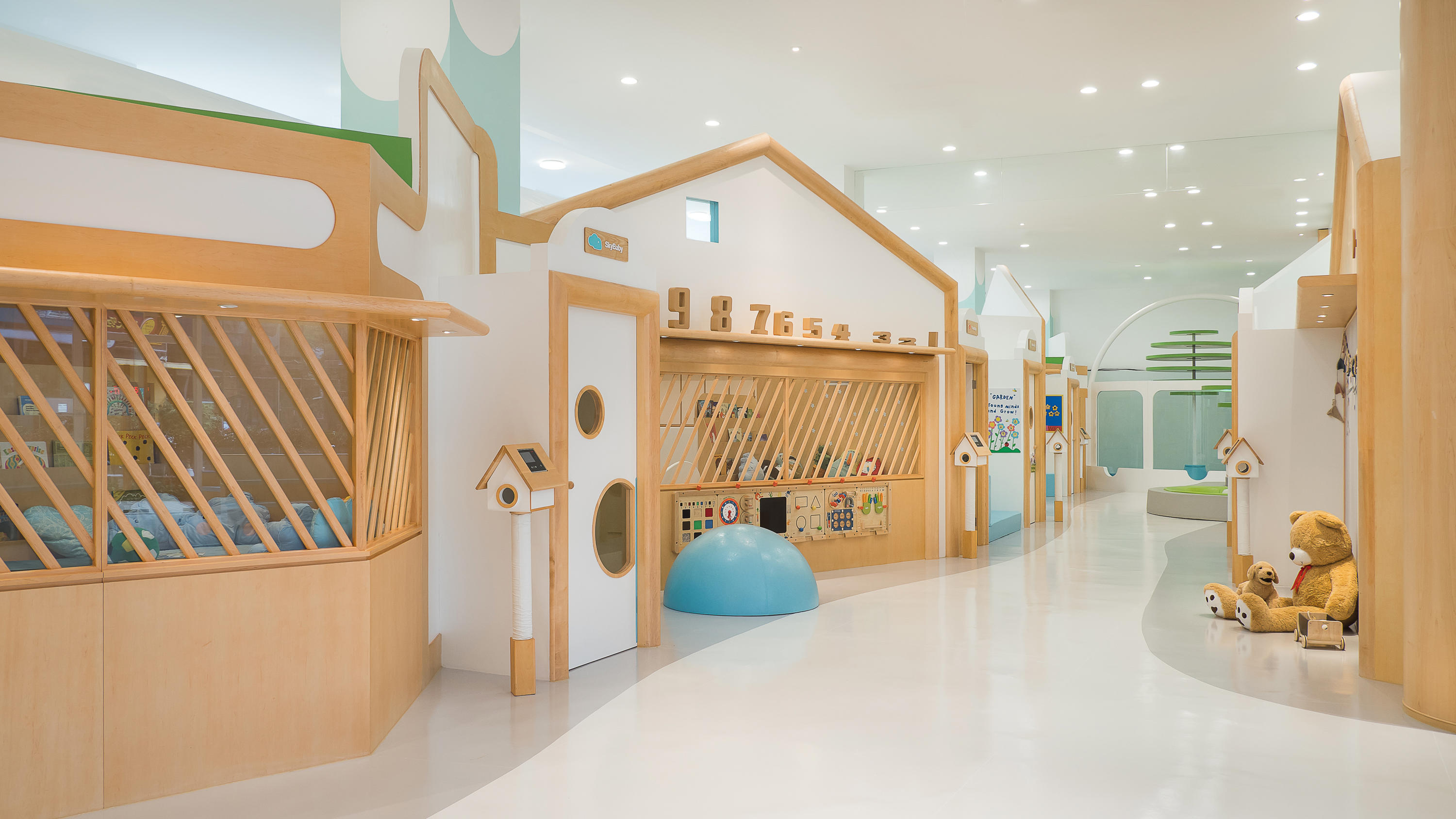Discover the most effective Baby Daycare Near Me: Safe and Nurturing Settings
Discover the most effective Baby Daycare Near Me: Safe and Nurturing Settings
Blog Article
The Role of Daycare in Promoting Your Young child's Psychological and Cognitive Abilities Through Structured Play and
The function of childcare in supporting a young child's cognitive and emotional development is usually undervalued, yet it serves as a pivotal environment for organized play and academic activities. With thoroughly designed experiences and communications, caregivers help with necessary skills such as emotional awareness and problem-solving.
Value of Structured Play
Structured play is a crucial component of kid advancement, as it offers a framework whereby youngsters can engage in purposeful communications and discovering experiences. This type of play is purposefully developed to cultivate various developmental skills, such as cognitive, social, and physical capacities. By taking part in structured activities, toddlers learn to follow guidelines, take turns, and coordinate with peers, all of which are necessary for their interpersonal skills.

In addition, structured play usually includes instructional aspects, such as counting, color recognition, and language growth, flawlessly integrating finding out right into fun tasks. This strategy not only captures young children' interest however likewise strengthens vital principles in an enjoyable way. On the whole, structured play contributes in promoting a well balanced growth, gearing up young children with the fundamental abilities necessary for future knowing and social communications.
Emotional Advancement in Childcare
Day care environments play a vital role in fostering emotional advancement in kids. These settings provide children with possibilities to communicate with peers and caregivers, assisting in the advancement of crucial social-emotional skills. Via regular interactions, toddlers find out to identify and express their emotions, such as disappointment, joy, or unhappiness, which is crucial for their emotional maturation.

Additionally, the structured setting of daycare permits kids to experience a selection of emotions in a safe area. They find out to handle feelings of separation anxiousness when transitioning from home to daycare and develop resilience as they navigate new connections and experiences. On the whole, the psychological advancement fostered in daycare not only advantages kids during their formative years however additionally prepares for healthy and balanced social partnerships and emotional well-being throughout their lives.
Cognitive Skills With Activities
Through participating in a variety of activities, kids in day care settings can substantially enhance their cognitive skills. Structured play and educational jobs are critical in promoting cognitive development, as they offer opportunities for expedition, analytic, and critical reasoning. Activities such as problems, foundation, and memory games test toddlers to believe artistically and practically, promoting essential abilities like spatial awareness and pattern recognition.
In addition, interactive storytime sessions urge language development and comprehension. By listening to stories, young children discover to process information and involve their creativities, which enhances their narrative abilities and vocabulary. Additionally, hands-on activities involving crafts and arts promote great motor skills while likewise encouraging self-expression and creativity.
Sensory play, such as sand or water activities, enables toddlers to experiment with different appearances and products, promoting inquiry-based discovering. These experiences not just improve cognitive capabilities yet likewise infuse a feeling of curiosity about the world around them - daycare for infants near me. In general, the diverse series of cognitive activities offered great site in daycare environments plays an essential role fit a toddler's capability to believe critically, address issues, and engage meaningfully with their surroundings
Social Links and Interaction
In a nurturing environment, young children normally forge social connections and engage in communications that are vital for their interpersonal and psychological development. Day care settings give an one-of-a-kind chance for children to interact with peers, cultivating crucial social skills such as sharing, collaboration, and conflict resolution. These interactions aid young children find out to browse their emotions and recognize the point of views of others, which are crucial parts of emotional knowledge.
Via structured play and group tasks, toddlers are urged to interact their sensations and thoughts, improving their spoken abilities and advertising empathy. Involving with peers likewise introduces them to diverse social norms and actions, enhancing their understanding of social characteristics. Consistent communication with other kids aids to build a sense of neighborhood, giving a support system that is valuable for psychological development.
As kids take part in joint jobs, they discover the relevance of settlement, team effort, and perseverance. These fundamental social skills are essential as they get ready for future connections, both in instructional settings and past. Inevitably, the social links developed in daycare play a substantial duty in shaping a young child's capability to communicate positively and effectively with others throughout their lives.
Function of Caretakers in Development

Caretakers play a pivotal role in promoting young child growth, particularly in the context of the social communications they experience in childcare setups. These professionals offer a nurturing setting where toddlers can discover their emotions and cognitive capacities through structured play and . By engaging in meaningful discussions, caretakers sustain language development and improve social skills.
In addition, caregivers design proper actions and emotional responses, assisting kids find out empathy and conflict resolution. Their presence likewise produces a complacency, which is important for youngsters to with confidence explore their surroundings and involve with peers.
In enhancement to psychological and social support, caregivers contribute in implementing academic curricula that promote cognitive development - toddler daycare near me. They introduce age-appropriate activities that stimulate inquisitiveness, essential reasoning, and problem-solving abilities. This structured approach ensures that young children not only appreciate their playtime however likewise acquire foundational knowledge important for future understanding
Eventually, the high quality of caretaker communications significantly affects a kid's total growth. By promoting a supportive Get the facts and appealing atmosphere, caretakers assist prepare for healthy psychological and cognitive growth, gearing up children with important skills for their long-lasting trip.
Final Thought
Finally, day care serves as a crucial atmosphere for promoting psychological and cognitive development in young children. Through structured play and academic tasks, youngsters experience significant growth in their ability to identify and express feelings, develop critical assuming skills, and form essential social connections. The role of caregivers is critical in facilitating these experiences, making certain that each child advantages from a nurturing ambience that advertises long-lasting psychological well-being and cognitive development.
The function of childcare in nurturing a toddler's psychological and cognitive development is usually ignored, yet it offers as a crucial atmosphere for organized play and instructional tasks. Generally, structured play is important in promoting a balanced advancement, gearing up toddlers with the foundational skills essential for future discovering and social communications.
Day care settings play a critical role in fostering psychological advancement in kids. On the whole, the psychological advancement cultivated in daycare not just advantages toddlers throughout their formative years but additionally lays the groundwork for healthy interpersonal partnerships and emotional well-being throughout their lives.
With structured play and team tasks, toddlers more information are motivated to communicate their sensations and ideas, improving their verbal skills and promoting compassion.
Report this page